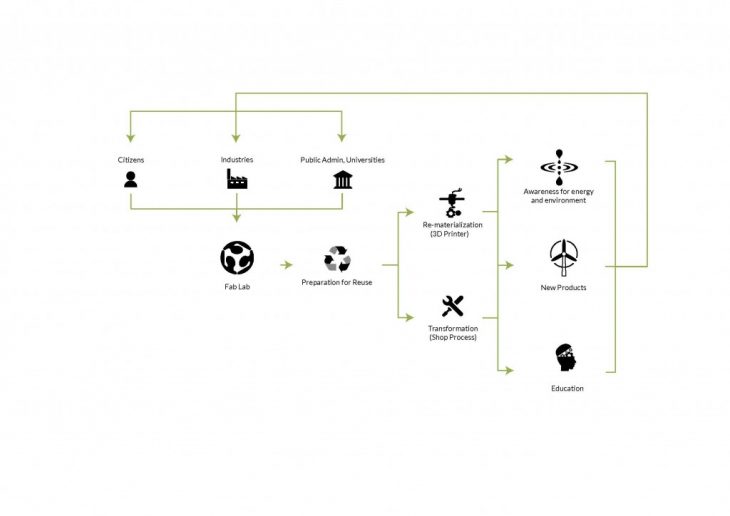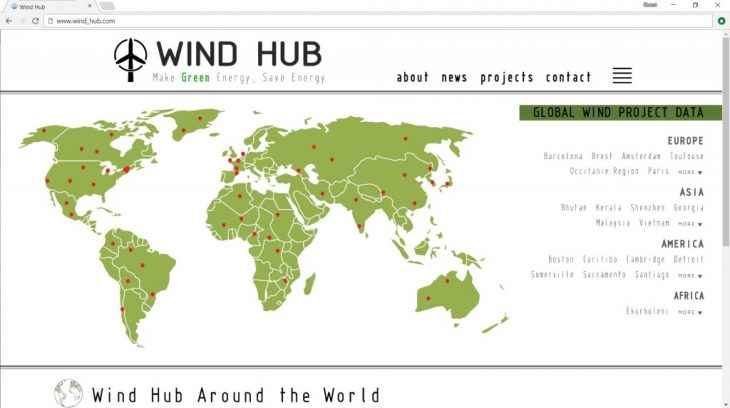Wind Hub is a self-sufficient workspace for the students of the IAAC. The project features a series of wind turbines that are made from recycled materials. The turbines are made from a variety of waste materials and consist of a variety of types, colors, and sizes. The goal of incorporating means of on-site energy generation is to bring a usable workspace for students to engage in while raising awareness of the energy used by the building to promote these activities of work. The process of engagement with the creation of the turbines allow for the turbine to be applied to a variety of projects in scenarios over the world. The components are a variety of standard hardware, fablab technology, and recycled materials. Global data through data hubs such as SMARTCITIZEN paired with DIY tutorials and software simulations can allow for the optimal use of any projects that contain a wind turbine. We propose that global data can empower the user to the information needed while local recycled materials could engage the user with choices in its design.

Wind Hub brings awareness of the ecological foot print by displaying the use of recycled materials such as sheet metal from cans and a variety of scrap fabric. By putting them to use, and engaging people with the information to do so, the project proposes a plausible scalable solution to put our trash to work all over the world.
Wind Hub utilizes a roof form that shelters and optimizes the use of wind turbines. It’s form takes advantage of seasonal north and south winds by funneling and encouraging directional travel to give the turbines higher velocities. The double layered roof provides cooler shading during hot summer days than a single layered roof. The extra roof space brings opportunities for the use of solar panels if extra electricity is needed.
The process of construction for the roof would be in the dimensions of working materials sourced from local stores and workable in fablabs. Ideally able to be assembled by three people, the wind hub aims to set a precedent for a variety of other DIY customizable projects that can be made within the parameters of materials and fablab processes. The project is a demonstration of how waste materials can be put to work with global data and the help of local fablabs.

Our project is more about a process of engaging waste materials for the purpose of generating renewable energy. How the engagement occurs is based upon live data gathered from the world, digital simulations to understand its optimization, and the availability of local fablab resources and materials. Wind Hub is an interpretation of how these tools and resources can come together to create a project that is a sustainable solution for the need of energy demands. We emphasize in the process of the project because we believe that it allows for the mass customization of projects that not only consist of wind, but also solar and geothermal solutions in scenarios where they seem to be more viable.
Students: June Kim, Esther Medina, Craig Chao
Faculty: Mathilde Marengo
Teaching Assistant: Johana Monroy
